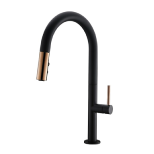
Small Business Software Is Essential: Read This Before Purchasing
As every entrepreneur knows, with everything going digital, more and more is being pushed onto the small business owner. This year, HMRC rolled out its Making Tax Digital initiative, compelling 1.2 million VAT-registered businesses which earn £85,000 plus in turnover to file returns online. Those businesses now must submit their quarterly VAT returns under the new system. However, it is not going to stop there – MTD will be widened to include income tax and corporation tax from 2021 onward. Given that moving to small business accounting software is inevitable for every SME, surely, it is time to put away your paper and pencil (or your standalone Excel spreadsheet).

Every small business is different. Most small businesses can make do with basic functions like invoicing, bank reconciliation, income and expense tracking and financial report generation. Indeed, most UK small business accounting software offers the same features, it is just that you may feel more comfortable with how one is designed over another – and then of course, there is the cost.
Although there are free options available, when it comes to UK small business accounting software – and especially something as sensitive as financial information – it is probably wise to pay for a package.
The other change that has happened is the rise of monthly subscription as opposed to a one-off software licence. On the plus side, Software-as-a-Service (SaaS) means your tech is always up to date. The downside is that, as the months roll on, you eventually end up paying more than if you had bought a one-off licence.















__thumb__120x120__70__a960ee47ff3b39dd79c65d0b2f96a706.jpg)

